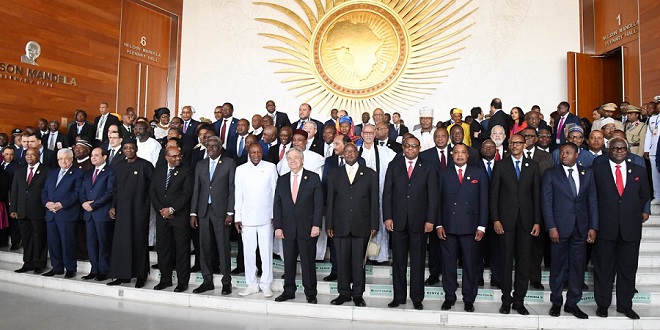
The continent’s democracies badly need a new generation of leaders, but where are they to be found?
COMMENT | STEPHEN CHAN | In every single African country, young people make up the majority of the population and they are generally very ill served by their ageing governments.
Young leaders, where they can be found, don’t just come with energy; the right ones can bring new ideas, technocratic competence, and a new idealism.
Instead, some of the continent’s biggest populations are led by old men and their old cronies, who have depressingly little to offer.
What does the future hold for Africa’s older, most entrenched leaders? Some seem determined not to be moved: Joseph Kabila is determined to cling to power in the Democratic Republic of Congo, as is Yoweri Museveni of Uganda.
Other grand old men who’ve tried to hang on haven’t done so well, but their successors are hardly a breath of fresh air. The ouster of Zimbabwe’s Robert Mugabe and the departure of South Africa’s Jacob Zuma have respectively brought Emmerson Mnangagwa and Cyril Ramaphosa into office.
But the two usurpers carry albatrosses round their necks. Both are saddled with unreformed, unhappy political parties. Mnangagwa is forever associated with Zimbabwe’s history of lethal violence; Ramaphosa, meanwhile, is associated with the 2012 police massacre of innocent people at Marikana.
Change at the top is often no change at all. In Nigeria, meanwhile, septugenarian President Muhammadu Buhari is in poor health, and his bold promises have evaporated. A former president, Olusegun Obasanjo, has publicly advised him not to contest the next elections because of his health, but it was Obasanjo himself who helped the sickly Umaru Musa Yar’Ardua become president; he promptly died in office, leading to the disastrous elevation of his inept vice-president, Goodluck Jonathan. It’s bad enough that these leaders are creaking and unimaginative. But to make matters worse, none of their likely replacements or opposition leaders have youth on their side.
None are nearly as sprightly as Canada’s Justin Trudeau, France’s Emmanuel Macron, or Austria’s Sebastian Kurz. More conspicuously still, no aspiring female president is anything like as youthful as New Zealand’s Jacinda Ardern.
One of the only exceptions is Liberia’s new president, former footballer George Weah, who will try to take his country forward.
Expectations are high, but Weah has never run a ministry, let alone a government. As far as most of Weah’s fellow democratic governments are concerned, no clean break from the past is on the horizon.
So with the old guard holding on, what hope is there for change? Getting real One thing that can be said about Rama- phosa, at least, is that he has enough money not to be readily bought.
But the same is not true of those around him, among whom are many Zuma loyalists. As for Mnangagwa, he is making a won- derful show of talking the talk.
After all, he has to: Zimbabwe is bankrupt, and his level- headed outreach to the rest of the world amounts to a refined form of begging.
His predecessor, the oldest president of them all, turned increasingly inwards until his own country entered its catastrophic economic decline.
It will take much more than a well spoken leader to correct that. And Mnangagwa’s government is now so militarised, with generals in the cabinet and former General Constantino Chiwenga as vice president, that the iron fist which took care of Mugabe could yet come down on him.
After decades of a government in denial, Zimbabwe needs 2018 to be a year of realism. The road to recovery will be long and arduous.
For years the country has had no financial plan, and its Western and Chinese backers will be deeply wary of its new claims to fiscal probity. If Mnangagwa thinks he can talk the talk without walking the walk, he will soon be disabused.
South Africa’s leaders, on the other hand, need to choose where to start as they try to clean house. Their efforts at positive discrimination and black economic empowerment have largely failed. What developed was a class of lacklustre businesses dependent on ANC contracts and contacts.
Nothing expanded, nothing grew. Instead, small and medium enterprises need incentives to grow tax holidays, perhaps, rather than privileged contracts; flexible credit, but savage reprisals and foreclosures if they’re wasted by mismanagement.
But at the centre of it all is educational provision. Many in South Africa believe that to reduce or reverse the terrible biases and inequalities that still persist more than two decades after the apartheid era, mass access to higher education is required.
If that’s going to happen, university education has to somehow be made free. As for Nigeria, real change won’t come any faster. If it can muster the nerve and sensitivity, the government needs to get behind reformers such as the Emir of Kano, who is step-by-step trying to change things in the conservative Islamic north.
He argues that only by bringing the conservatives along with him can he stifle the region’s violent fundamentalist groups, among them Boko Haram. This stately, pragmatic style is perhaps the best many young Africans can cur- rently expect from their leaders.
There will be no “youthquake” in Africa in 2018. If they don’t make way for younger successors, African elders need to sharpen their thinking, and fast.
*****
Stephen Chan is Professor of World Politics, SOAS, University of London
 The Independent Uganda: You get the Truth we Pay the Price
The Independent Uganda: You get the Truth we Pay the Price



